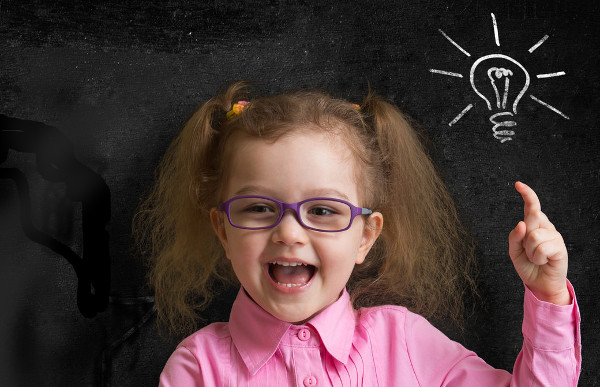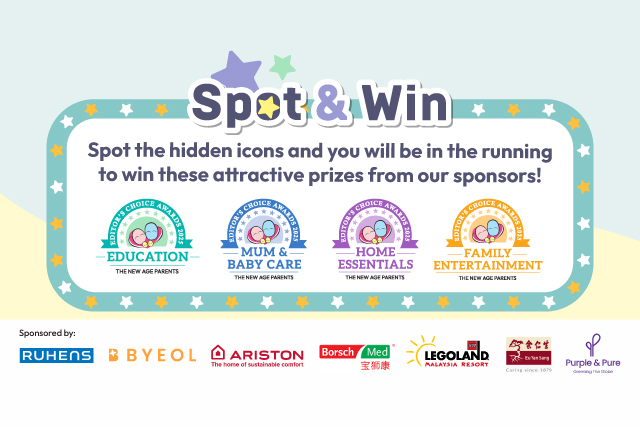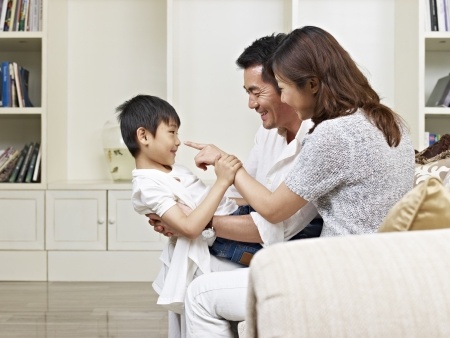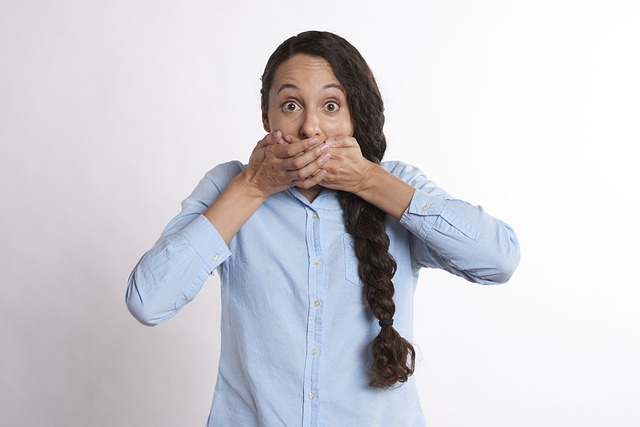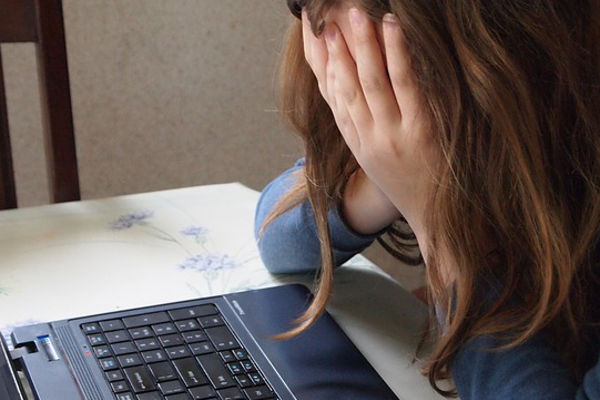Nothing makes parents more squeamish than thinking about talking to their kids about sex. Truth is, we never know when our children may ask us that question.
How will you reply to them when that day comes? TNAP asks two experts on how parents can speak to kids about sex and porn.

Talking to Kids about Sex
Expert: Dr Jonathan Ti from Dr. Tan and Partners (DTAP)
Q: When should I start to talk to my kids about sex? Should I wait till they ask me first, or approach the topic with them when an opportunity arises?
There is no set age to start talking to your child about sex. And contrary to popular culture, there is no ‘big talk’ where everything about sex gets taught in one go.
Information about sexuality (like most things) should be layered into everyday conversations, and certain important concepts such as consent, attraction and biological functions can be introduced in different stages.
The foundation of healthy sexual knowledge and behaviours can and should begin even before your child is verbal. This includes teaching the names of body parts and using anatomically correct terms whenever possible, such as ‘penis’, ‘vagina’, and ‘nipple’.
While teaching your child these terms may be daunting, it is important to be matter-of-fact and to treat these terms as we would any other body part such as the ‘ear’ or ‘hand’.
As your child ages, they will be naturally curious about their bodies and others, and you may hear questions like “where do babies come from?” which is a great place to start talking more about sex.
Of course, this needs to be framed with age-appropriate vocabulary, but the important thing is to be honest. For a child around 4 – 6 years old, you may say things like “a sperm from a man and an egg from a woman meet, and the baby grows in the woman’s belly”.
You do not have to be explicitly detailed about the act itself, but if your child is older (around 6 – 8 years old) and has the vocabulary, you can explain that the penis enters the vagina to release sperm, etc.
Also, be aware that how specific gender and parental roles and the importance of love and intimacy are explained here may vary depending on your cultural background and values.
Q: How do I know if my child is ready to understand sex?
Many parents over-estimate (perhaps intentionally) the age where they believe their children are ready to hear or learn about sex itself. The truth is, recent studies show that the average age children encounter pornography online is now only 10 years old.
Again, start laying the foundations of healthy sexual knowledge and behaviour early and be honest – this will ensure you are credible, non-judgmental, and will greatly reduce barriers of awkwardness at a time when your children are entering puberty, where there are many significant physical and hormonal changes that are taking place.
Q: Why do we have to speak to our children about sex? Doesn’t the school have sex education and something they learn in biology? They can just learn it from school right?
Children will naturally absorb enormous amounts of information both at home and in school. This includes not only what you teach them verbally, but what behaviours and values they observe demonstrated at home.
Ensuring that your child has a healthy knowledge base will help to empower them to develop safe and fulfilling relationships in the future. Schools and social groups will, of course, play a role in this development, but the greatest influence for a young child always starts in the home.
Avoiding discussions on healthy sexuality will only serve to build barriers in trust and communication between parent and child, and can only increase the chances of at-risk behaviour.
Q: Before talking to my kids about sex, should my spouse and I talk about it first? i.e. What should we talk about first, to make sure we are on the same page?
Absolutely. It is always a good idea to speak to your partner to ensure that you are both in agreement about what, when, and how you will be broaching these topics with your child.
Be clear about what kind of values and beliefs are important to your home when it comes to sex, gender roles, and intimacy or relationships.
Remember to be consistent with each other’s messaging and address each other’s views with respect. As mentioned, there is no single topic that should be discussed ‘first’, but if you are having trouble deciding how to broach sexuality a good place to start with your child is at a related topic – puberty.
You can start by explaining how their bodies will start to change, and how these changes relate to sexual maturity. Again, be honest, open, and factual always.
Q: My parents never talked to me about sex. How can I make the conversation with my child less awkward and ‘weird’?
Again, we need to stop thinking that there needs to be one conversation that will cover all the important aspects of sexuality and relationships.
Starting conversations early in childhood will ensure your child has the vocabulary and fundamental understanding of their body to progress to more mature concepts.
As parents, how awkward or ‘weird’ a conversation gets is really up to you – you need to first educate yourself and be comfortable with sexual topics before this becomes an issue with your children.
Tolerate the awkwardness and make sure you speak matter-of-factly; treat these discussions like you would any other, and take everyday opportunities (e.g. scenes in a TV show, social media posts, etc.) as a starting point to explore these issues with your child.
Q: I have a boy and a girl. Do I have to adopt a different approach for my girl and boy when talking about this subject? I.e. Should daddy speak to the boy and mummy speak to the girl?
There is no need for a particular parent to speak to their child just because of their gender. As long as both parents are on the same page and have consistent messaging, both should play an important role in educating your child.
Of course, you also have to be comfortable with what you are talking about – if that means mum speaks to the girl about menstruation and breast development, so be it.
However, try not to dismiss or avoid your child’s questions just because it makes you feel awkward – children can sense this and it may create a barrier for communication in the future.
Q: What should I be careful of; what should I say or not say?
Avoid scolding or admonishing your child for being curious about sexual matters – again, take these opportunities to teach them in a truthful, non-judgmental manner. Be clear about the values you wish to instill but be open and respectful if your child has questions or concerns.
On the other end of things, be careful not to be overly intrusive either – every child needs to have a sense of privacy as well. However, if you notice any ‘red flags’ in their behaviours, such as simulation of adult sexual acts, behaviours involving threats or force, or those that provoke a strong emotional response such as anger or anxiety, it is important to address these in a discreet manner.
Talking to Kids about Porn
Q: When should I start to talk to my kids about porn? Is there a ‘right’ time?
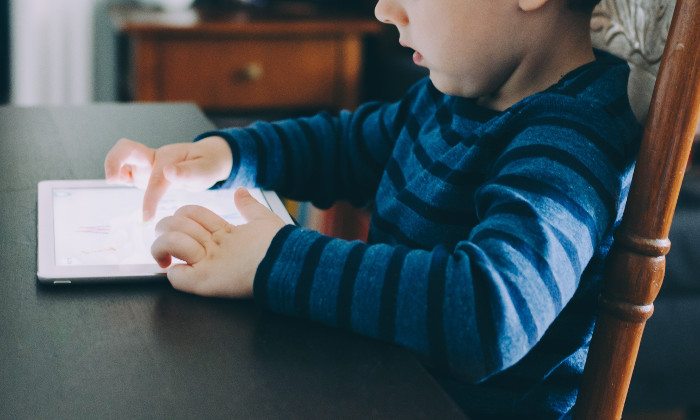
Let’s be honest – with the advent of the internet, it is close to an absolute certainty that your child will encounter pornography online at some point, whether intentionally or not – as we mentioned, the average age this occurs is now about 10 years old!
You can stumble upon adult-themed ads on websites where kids are supposed to play online games, stream sports videos, and social forums.
The truth is, the issue is not really ‘when’ your child may encounter porn, but really how they may be affected by it – what thoughts, feelings, and values about sexuality may arise from their exposure to porn? This is going to be determined largely by what you have taught them from an early age.
Q: Should I wait for my child to be a teenager before telling him about porn?
This is probably a little too late, given current studies on porn exposure and internet usage among adolescents. It would be more useful to take opportunities between 8-10 years old to explain that certain things in the media are appropriate for adults-only, such as nakedness and acts of intimacy.
Q: How can I tell if my child is mature enough to differentiate sex and porn?
Much the same way as you can tell if your child is mature enough to understand other concepts such as sharing and stealing – talk about it.
Ask them about what they know about sex and porn, and take time to explain that porn and hypersexualization in the media are not equivalent to healthy intimacy and relationships in real life.
Q: Will talking to my kids about porn make them more curious about it?
Most likely, yes. But let’s think about this a little more – isn’t it safer if they are curious and can ask questions with a parent around, who can give them accurate information about sexuality and consent, rather than doing so alone on the internet or with a friend?
If you initiate the conversation, you can establish yourself as a trustworthy and non-judgmental source of information while imparting your values and attitudes about the potential negative aspects of porn exposure.
Ultimately, empowering your child with the right knowledge will help to keep them safe and prepared should they encounter porn in the future.
Q: What causes people to be addicted to porn?

This is a tough question with no simple answer. There is a multitude of factors that can influence someone’s desire or compulsion to view pornography – these include widespread availability and accessibility, online anonymity, and the biochemical responses to porn exposure such as dopamine release (with the lack of immediate negative consequences).
Indeed, even defining or diagnosing someone with a porn addiction may not be clearcut. If you are concerned that your child may be addicted to porn, please speak first to a medical professional for a proper assessment.
Q: Why is it necessary for parents to talk to teenagers about porn?
Excessive exposure to pornography without an understanding of its negative consequences can lead to several issues in young adulthood and beyond. These include having distorted views on sex and intimacy, negative body image issues, and an increased risk of developing sexually compulsive behaviour.
Teenagers and young adults who are not taught about healthy sexuality from an early age may rely on porn as their only source of information, increasing the risk of unsafe behaviours and attitudes about sex.
Q: How can I prepare my child when their friends start to talk to them about sex and porn at school?
To put it simply, talk to them about it first. As we’ve said throughout, start early and be honest. Imparting your knowledge and values about sexuality and porn to your child in a safe environment at home will establish you as a credible and non-judgmental source of information while empowering them to be able to deal with these sorts of encounters outside of the home.
Q: What should I be careful of; what should I say or not say?
Be truthful and approachable when it comes to communicating about sex or porn. Avoid an environment of shame, guilt, or punishment when it comes to messaging about these topics.
Doing so will only serve to create barriers for your child to approach you about situations in the future. Instead, use these opportunities to teach them about healthy relationships, sexual intimacy, proper consent, and the consequences of unsafe sex.
Talking to Kids about Sex
Expert: Tammy M. Fontana from All in the Counselling
Q: When should I start to talk to my kids about sex? Should I wait till they ask me first, or approach the topic with them when an opportunity arises?
We can start by slowing introducing and talking to their children about the different body parts, including the female and male genitals, using the proper terms.
Now imagine talking to your kids about porn. With the arrival of smartphones, porn can be accessed within the palms of your child’s hand.
Whether we like it or not, our kids are going to encounter or hear the word one way or another, intentionally or unintentionally. It is not ideal that kids watch or consume porn, but if they happen to, they would need adult guidance.
Clearly, you don’t want the first conversation you have with your kid about sex to be about porn. Therefore, talk to your kid about sex NOW.
With young children, sex talks involve identifying their body parts by their correct anatomical name. Reading books about the human body can also help to get the conversations going. These are body parts that all humans have, and there is a reason behind each body part.
It may be very awkward at the beginning. But the more experience you and child have, the easier it will be to talk about it.
Talking to Kids about Porn

As a family counselling therapist, I have many parents calling me with their concerns, who seek for my advice when they realise their child has been surfing pornography online.
Working pre-emptively about porn is a parent’s best strategy. You want your child coming to you to learn more about sex, and preferably not through friends, the internet or pornography.
Dr. Marty Klein, a Sex Therapist and Marriage counsellor from the US sheds some light about pornography. Parents can educate their children about the points below when they are old enough to understand.
- It is not real. Porn is a group of professional actors and actresses who follow a written script and play characters, just like in other movies.
- Porn is like a video game, designed to entertain.
- It is not a documentary. It has a lot of editing and it is designed to thrill.
- Porn does not portray sex the way it really is. It leaves out a lot of what most people like about sex— the emotional aspects such as laughing, talking, and feeling close. Instead, porn is mostly physical, and show bodies rubbing against bodies, which is sex without feelings.
- Porn features unusual bodies doing unusual things. Your body doesn’t, and probably will never look like the bodies in porn.
If you need additional help or guidance for your child, going to your health counsellor or psychologist will be a great place to get accurate information and advice.
A version of this article was first published in The New Age Parents e-magazine
* * * * *
Like what you see here? Get parenting tips and stories straight to your inbox! Join our mailing list here.
Want to be heard 👂 and seen 👀 by over 100,000 parents in Singapore? We can help! Leave your contact here and we’ll be in touch.










